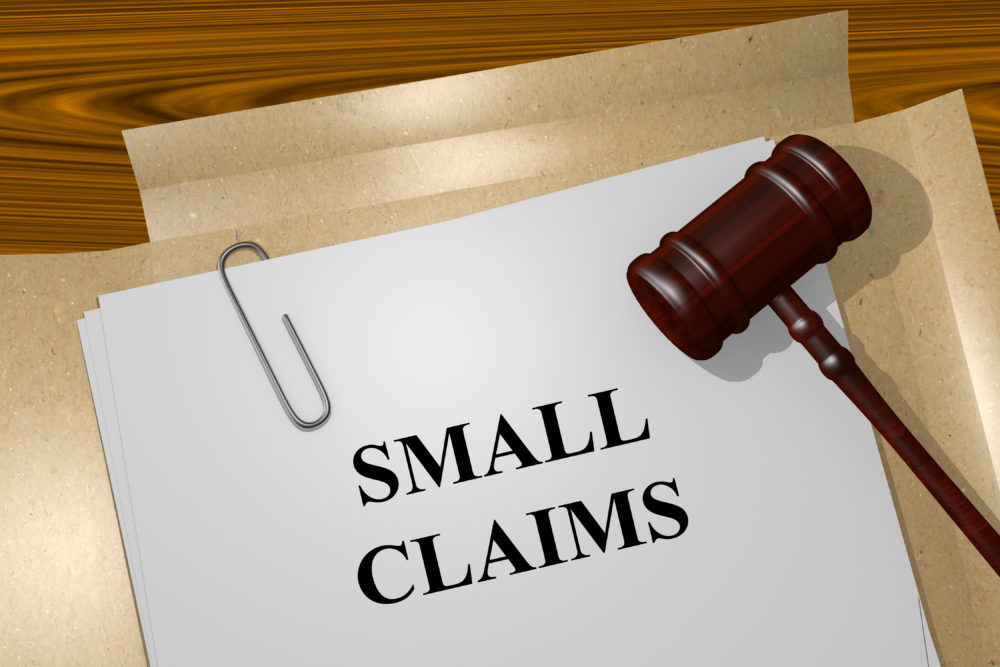Understanding Small Claims Court: An Essential Guide
Small claims courts are designed to help individuals and businesses recover money owed to them or reclaim property without engaging in lengthy and costly trials. These courts provide a more accessible and simplified judicial process, allowing claimants to file disputes in a straightforward manner. Whether you are seeking compensation for a financial loss or want to resolve a property dispute, small claims court offers an efficient legal avenue to attain justice.
The fundamental advantage of small claims courts is their focus on resolving minor legal disputes quickly and inexpensively. Traditional court proceedings can sometimes be time-consuming and demand substantial legal fees, which may not be justified for lower-value claims. In contrast, small claims courts streamline the process, enabling parties to present their cases with minimal formalities and without necessarily needing professional legal representation.
Filing a Complaint in Small Claims Court
Initiating a case in small claims court typically involves filing a simple complaint with the court clerk. This complaint must outline the nature of your dispute, the details of the claim, and the remedy you seek, such as monetary compensation or property recovery. Filing fees are generally modest compared to conventional lawsuits, making this option more accessible.
It is crucial to ensure that your complaint contains all necessary information to substantiate your claim. This includes providing names and contact information of all parties involved, a clear description of what transpired, and the specific amount or item you wish to recover. Properly drafting the complaint can significantly impact the court’s understanding and the outcome of your case.
Preparing Evidence for Small Claims Court
Presenting compelling evidence is fundamental to winning a case in small claims court. As the court process is expedited, judges rely heavily on the documentation and proof submitted by the parties. Common forms of evidence include contracts, receipts, invoices, correspondence, photographs, and witness statements. These materials demonstrate the legitimacy of your claim and the damages or losses incurred.
Organizing your evidence in a logical and comprehensive manner will enhance your presentation before the judge. This preparation informs the judge exactly why your claim should be granted. It is advisable to bring multiple copies of all critical documents to the court session for easy reference and to provide copies to the opposing party if needed.
Courtroom Conduct and Making Your Case
When appearing in small claims court, clarity and respect are paramount. Judges appreciate when parties communicate their points succinctly and demonstrate civility toward all courtroom participants. Remember, the small claims court process is designed for non-lawyers; therefore, you should avoid legal jargon and focus on presenting the facts clearly.
Speaking confidently and maintaining a respectful attitude helps foster a positive impression with the judge. It is equally important to listen attentively to the opposing party and the judge’s instructions. If you are unsure about certain procedures or have questions, politely inquire with the court clerk or judge for clarification. A respectful demeanor can influence perceptions and potentially the court’s ruling.
Steps to Achieve Victory in Small Claims Court
- Gather and organize all relevant evidence including contracts, receipts, photos, and communications.
- Draft a clear and concise complaint detailing the dispute and the relief sought.
- File the complaint with the appropriate small claims court and pay any required filing fees.
- Prepare your oral argument focusing on key facts and evidence without unnecessary legal technicalities.
- Attend the court hearing on time, dress appropriately, and conduct yourself respectfully.
- Present your evidence effectively, answer questions honestly, and remain calm throughout the proceedings.
- Follow up with the court clerk for the judgment and understand any post-judgment collection procedures.
When to Seek Professional Legal Assistance
While small claims court aims to be accessible without legal representation, there are circumstances where consulting an attorney is beneficial. Complex cases involving significant amounts of money, multiple parties, or intricate legal issues may require professional guidance. Additionally, if you feel overwhelmed or uncertain about court procedures and your rights, seeking legal advice can improve your chances of success.
Our company, Legal Marketplace CONSULTANT, offers comprehensive legal support tailored to your needs. We can assist you in preparing your case, understanding the legal framework, and representing you if necessary. Do not hesitate to reach out via the contact information provided in our bio or send a private message for personalized assistance.
- Simplified dispute resolution with reduced court fees;
- Opportunity to recover money or property without protracted litigation;
- An accessible process tailored for non-lawyers;
- Provision to represent yourself or hire legal counsel;
- Efficient handling of minor civil disputes up to specified monetary limits;
- Enforcement of court judgments with available legal remedies;
- Ability to file complaints quickly and receive timely hearings;
Important Considerations and Best Practices
Understanding the limits and jurisdiction of small claims courts is critical before filing your case. These courts typically have monetary caps that vary by state or region, which restricts the value of claims that can be brought. Additionally, certain types of disputes may be excluded from small claims court, such as family law matters or complex contractual issues.
Preparing for your hearing involves not only organizing documents but also rehearsing your presentation to maintain focus and confidence. Consider summarizing your points and evidence in writing to keep track during the hearing. Being punctual and dressing professionally contribute to the overall impression you make on the court.
If you obtain a judgment in your favor, understanding enforcement methods is essential. Courts provide mechanisms like wage garnishment, property liens, or seizure of assets to collect the awarded amount. Sometimes, the losing party might voluntarily comply, but if not, legal procedures exist to ensure compliance.
Common Mistakes to Avoid in Small Claims Court
- Failing to gather sufficient evidence to support your claim;
- Submitting incomplete or inaccurate complaint forms;
- Ignoring court deadlines or failing to appear in court;
- Being disrespectful or confrontational in the courtroom;
- Underestimating the importance of clear and concise communication;
- Over-reliance on verbal statements without documentation;
- Neglecting to understand the court’s rules and procedures;
How Legal Marketplace CONSULTANT Can Support You
At Legal Marketplace CONSULTANT, we are dedicated to providing you with expert legal assistance tailored to small claims court processes. Our professionals will guide you through filing complaints, collecting and organizing evidence, and preparing for hearings. We strive to make the legal process understandable and accessible, ensuring you feel confident during your court appearance.
Our firm has extensive experience navigating small claims cases, helping clients achieve successful outcomes efficiently. By leveraging our expertise, you can avoid common pitfalls and optimize your chances of recovering the money or property rightfully yours. Contact us today through the communication links in our bio or send a private message to begin your consultation.
Legal Marketplace CONSULTANT is a professional legal service provider specializing in comprehensive support for individuals and businesses. Our expert team is committed to delivering efficient, clear, and client-focused legal guidance, especially in small claims court cases.
Small claims court offers a practical and accessible means to resolve minor disputes involving money or property without the need for protracted litigation. Success in these courts hinges on careful preparation, clear presentation of evidence, and respectful courtroom behavior. When in doubt, seeking professional legal advice can substantially improve your chances of winning your case. Legal Marketplace CONSULTANT stands ready to assist you every step of the way, ensuring your legal rights are protected and your claims are properly presented.
By following the outlined steps and best practices, you can confidently approach small claims court with the necessary tools and guidance to reclaim what you are owed. Reach out to us through our bio or private message for expert support tailored to your unique situation.































